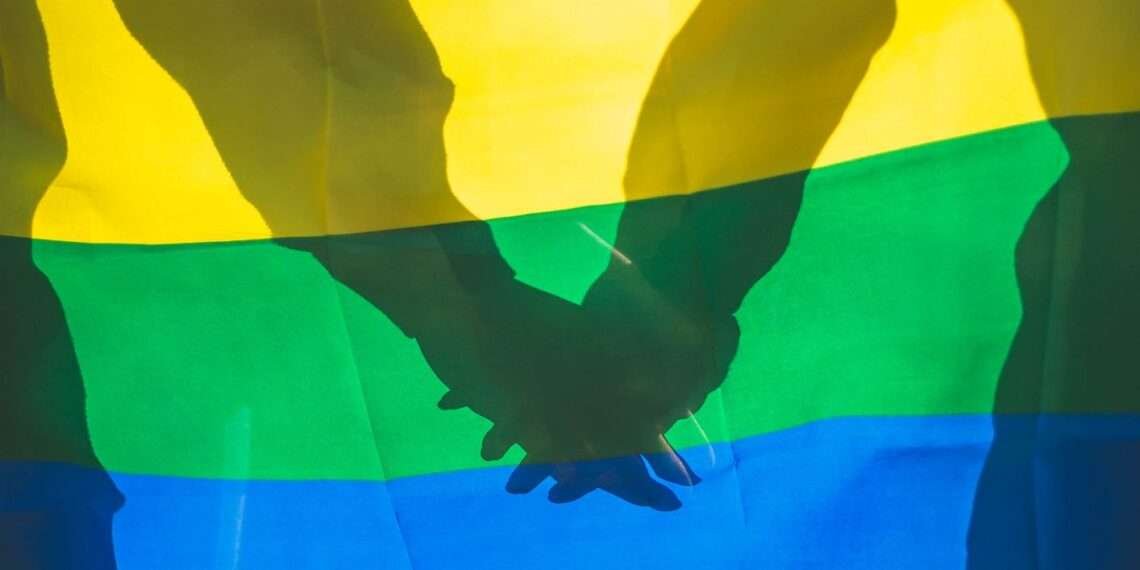The murder of Edwin Chiloba, a Lesbian, Gay, Bisexual, Transgender and Queer (LGBTQI+) activist whose body was discovered concealed in a metal box has sparked outrage with rights crusaders expressing deep concern over intolerance.
Activist Edwin Chiloba’s remains were found on Tuesday near Eldoret town in Uasin Gishu county, where he ran his fashion business, independent rights group the Kenya Human Rights Commission (KHRC) said.
Chiloba was a prominent fashion model and LGBTQI+ activist. Reacting to reports on his cruel murder, the Kenya Human Rights Commission termed escalation of violence against the LGBTQI+ community as worrisome. Stephen Mutoro, the Secretary General of the Consumers Federation of Kenya also condemned the brutal murder.
Motorbike taxi riders alerted police after they saw the box dumped by the roadside from a vehicle with a concealed number plate, .
The killing of Chiloba has reignited debate about LGBTQI+ rights in Kenya. In April 2022, another LGBTQI+ member Sheila Lumumba’s body was discovered in Nairobi days after she went missing. While same-sex relations remain outlawed in Kenya, the country’s courts have affirmed rights guaranteed under Article 28 which states that every person has inherent dignity and the right to have that dignity respected and protected, and 31 which says that every person has the right to privacy.
Kenya is one of 32 countries in Africa that criminalise homosexuality. People who identify as lesbian, gay, bisexual, transgender and intersex (LGBTI) are frequently stigmatised, shamed, and assaulted. The hashtags calling for action against the murder of queer people– like the most recent #JusticeForChiloba continue to trend on social media.
It can be recalled that Sheila Lumumba, a 25-year-old non-binary lesbian (they did not identify as either a woman or a man) was found dead in Karatina, north of Nairobi, on 17 April 2022. Lumumba was reportedly raped and murdered in the most gruesome manner. #JusticeForSheila is a hashtag that also mobilised public engagement on the murder of queer people in Kenya generally and calls for public accountability for Sheila’s murder.
How Prevalent are such Attacks in Kenya?
In a hostile environment for queer people, documentation from civil society organisations only captures part of the story. The Gay and Lesbian Coalition of Kenya reports that “in Kenya, 53% of LGBTQ+ people are physically assaulted– that’s every second person.” Anecdotal evidence from media reports points to a pattern of attacks that range from murder and sexual assault to other forms of physical attacks and threats. In 2021, at least three reports were captured in mainstream media that involved either murder or suspicious deaths.
Last year a transgender woman was murdered, and her body dumped on the streets in Nairobi. In the same year, a Ugandan refugee died from burn injuries associated with an attack on a group of queer refugees at Kakuma refugee camp and a peer educator with a queer organisation in Mombasa was found dead in his apartment. In 2020, a queer activist was found dead in her apartment under what were deemed suspicious circumstances.
Another key feature of homophobia against queer people in Kenya involves the persistent threat of homelessness if their sexual orientation is discovered by family or owners of rental property.
According to experts, the basis for attacks springs from two things. The first is ideas about how gender is governed in society. This is anchored in patriarchy, a system that distributes power between women and men, girls and boys unequally by privileging men and prescribing accompanying roles, behaviour and expected norms.
The second is the assumption that heterosexuality is the only way people can understand or experience sexuality. People who deviate from these societal prescriptions become targets of violence.
READ ALSO: MTN Ghana, Honored With Six Awards At The 4th Project Management Awards




















